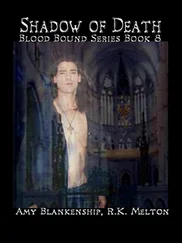“You do?”
“Yes. This is the way life should be. Many law enforcement people in the States wish our laws regarding firearms were the same as those in England and Ireland. It is only because almost anyone in the States is entitled to carry guns—and those who are not so entitled can secure them easily—that the police are armed. Life would be much better without firearms. One does not have to be a police officer very long before learning that many maimed people would be uninjured and many dead people would be alive if there were no guns available.”
“That was always my feeling. But I didn’t think gun control was that popular with the police.”
“Oh, yes, indeed, Father. We are often called to the scene of disputes and violence of one sort or another. And all too often, one or more persons in those situations are armed. When the police arrive, those arms are turned on us. Or, at least, the probability of that happening is very high.
“So, I find it most pleasant to be unarmed for a couple of weeks. Although I must admit, in our present circumstances, dealing with probable assailants who are most likely armed, I do feel a bit underdressed.”
The signal was given for the procession to begin. Koznicki took the ceremonial cross, while Beauchamp and Somerset carried the large candlesticks.
All in all, thought Koesler, they did not look unlike adult acolytes at an important ecclesiastical event such as the one about to begin.
Before they began the processional, Koznicki turned to Koesler and murmured, “Don’t worry about the Reverend Toussaint. If there is one thing he has demonstrated, it is that he can take care of himself.”
Koesler found the thought reassuring as well as time-proven. Yes, Ramon could take care of himself.
Besides, he had a good forty-five minutes to an hour before the open reception in the abbey. And that was the critical part of this service—when all present could approach the Cardinals and the Archbishop for their blessings.
As the procession reached the Poets’ Corner in the south transept on its way to the high altar, the organ, which had been playing softly, boomed out the first majestic chords of “God of Our Fathers.”
“Let’s see if I’ve got it right,” said Joe Cox. “The guys in the red and black are the authentic tag team members. But the guy in the silver robes is a fake.”
“That’s a little strong,” Pat Lennon replied. “But, yes, that’s about the way the Catholics look at it.”
“Silly game.”
“You’re right.”
Cox and Lennon had tickets to this service. And they had been pleased to discover that their tickets admitted them to excellent seats near the high altar.
Cox had concluded, correctly, that their good position in the abbey was the result of default. No royalty would be present.
Behind them, in front of the altar, as well as down the north and south aisles and in the rear of the nave were the great unwashed—those without tickets who had crowded into the abbey out of curiosity, devotion, general interest, or, perhaps, to commit murder.
“God of our fathers,” the congregation sang lustily, “Whose almighty hand,/Leads forth in beauty all the starry band,/Of shining worlds in splendor thro’ the skies,/Our grateful songs before Thy throne arise.”
“One thing we must all admit about our ‘separated brethren,’” said Irene Casey, “they do sing their hymns with vigor.”
“And well, too,” said Joan Blackford Hayes.
“Hey,” said Irene, turning toward her companion, “is that supposed to be a reflection on my singing?”
If it were, it could come as no surprise to Irene. All felt free to remind her she sang terribly.
“Well, if the shoe fits . . .”Joan allowed her mixed metaphor to trail off.
“I like that! May I remind you that it was no less than St. Augustine who said, ‘Who sings, prays twice.’” Irene could not hide her smile.
“That’s, ‘Who sings well, prays twice.’”
“Refresh Thy people on their toilsome way . . .” The congregation was on the final verse, singing with even more gusto than before. “Lead us from night to never-ending day;/Fill all our lives with love and grace divine,/And glory, laud, and praise be ever Thine.”
The Most Reverend Arthur Bell, Archbishop of Canterbury, approached the standing microphone. Henry Beauchamp, in the role of acolyte, exactly as he had rehearsed it earlier in the day, held an open copy of The Book of Common Prayer before the Archbishop.
“O Almighty God,” the Archbishop read, hands upraised in a prayerful gesture, “who pourest out on all who desire it, the spirit of grace and of supplication; Deliver us, when we draw nigh to thee, from coldness of heart and wanderings of mind . . .”
Right there, Koesler knew that for him this was going to be a useless prayer. His mind never stayed still. It raced constantly. Just as at age forty he had resolved not to make any more futile resolutions, he also knew he was doomed to make countless excursions in his stream of consciousness. He asked God to accept all his thoughts and deeds, even his distractions, as a prayer.
“. . . that with steadfast thoughts and kindled affections, we may worship thee in spirit and in truth; through Jesus Christ our Lord.”
From the congregation came a sturdy, “Amen.”
And then followed that peculiar rustling sound that is heard almost exclusively in church as everyone tries to find a comfortable position in which to sit or, if unlucky, to stand.
Archbishop Bell, who remained at the microphone, began to speak. He spoke movingly, if predictably, of the longing in Christian hearts for the reunion of all Christianity.
As he had feared, Koesler’s attention wandered, as past ecumenical experiences came to mind.
Archbishop Bell was speaking of the many recent attempts to tear down the barriers that still divided the various Christian sects.
At that point, Koesler recalled an Irish missionary priest, who had spent many years in Africa. Koesler could see him in memory: a large, white-haired, ruddy-faced man, who told countless stories about his years as a missionary! One of his stories he prefaced by explaining that he had received a rather liberal training in the seminary. Not, he stressed, like the training given priests just a generation older.
It was with just such an older priest he had been assigned to work in one of the more populous cities in what was now Tanzania. The older man, he explained, as a result of his uncompromising training, could not stand the sight of a Protestant missionary. “Why,” he said, “when Father O’Brien would even catch sight of a Protestant missionary, the very hairs on the back of his neck would stand on end.
“It was not that way with me. I was never thus affected by the sight of a Protestant minister. Of course,” he added, “I knew they were all goin’ to hell . . .”
Koesler had laughed. But, on reflection, he had wondered why, in a small Third World country, missionaries representing various Christian sects and working more or less the same territory never considered their work redundant.
Here was an entire world, most of which was considered heathen, or at best not Christian, and the various sects spent their lives criss-crossing each others’ paths, preaching roughly the same general doctrine with their peculiar sectarian shadings.
How much time, he thought, was wasted on sectarian idiosyncracies. He recalled a friend, a dedicated nun, who was returning to her mission in Japan in the company of a very elderly priest who was to become chaplain to her order.
The two had encountered a Japanese couple, who expressed surprise and sympathy to the nun, the only one of the two who understood Japanese. They assumed that the priest and nun were married—why else would a couple travel together?—and they also assumed the marriage had been “arranged”—why else would a pretty young lady marry an old man?
Читать дальше












